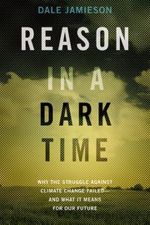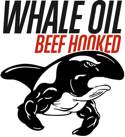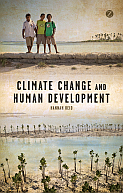 Welcome to a new regular feature on Hot Topic: the week’s Carbon News headlines, brought to you every Monday. Carbon News is an NZ-published web newsletter covering climate and carbon news from around the world, published and edited by experienced journalist Adelia Hallett. The full articles are behind the Carbon News paywall. Click on any headline to be taken to that story on the site.
Welcome to a new regular feature on Hot Topic: the week’s Carbon News headlines, brought to you every Monday. Carbon News is an NZ-published web newsletter covering climate and carbon news from around the world, published and edited by experienced journalist Adelia Hallett. The full articles are behind the Carbon News paywall. Click on any headline to be taken to that story on the site.
Carbon News has kindly agreed to offer Hot Topic readers personal (ie single user) subscriptions to their news service — and full access to the CN database of over 7,500 stories published since 2008 — at a substantial discount to normal pricing. Three month subs are $110 (code HT3), six month subs $200 (code HT6), and full year subs $360 (code HT12) – a saving of $140 on standard pricing. If you want to take advantage of these prices, register at Carbon News and enter the relevant code when signing up. This offer will expire at the end of the year.
Scientists plead for cuts to ballooning fossil fuel emissions
Scientists are calling for rapid cuts in the use of fossil fuels in the wake of data out today showing we have almost used up our fossil-fuel credit. Greenhouse gas emissions this year will hit a new high of 40 billion tonnes in what the Global Carbon Project is calling a carbon budget blow-out.
Political parties fail to get the sustainability message through
New Zealanders’ support for a shift to a sustainable economy is growing, according to new research from Colmar Brunton. The fact they didn’t vote that way in Saturday’s general election is probably more to do with campaign messages failing to get enough airtime with all the other ‘dirty politics’ noise than it is to do with interest in environmental issues, says the research company’s chief executive Jaqueline Ireland.
If the PM doesn’t worry about climate change, why should we?
New Zealanders are taking their cue on climate change from the Prime Minister, says social trends researcher Jill Caldwell. “They think that John Key is successful and smart, and that if there was really anything to worry about he’d be worried,” she told Carbon News.
Big business signs up with sustainability driver
Some of New Zealand’s largest companies and organisations have signed up to a new international movement on sustainable business.
Why Kiwibank took its business to the kids
When Kiwibank wanted to know how to move beyond the first stage of being a sustainable business, it asked a bunch of 10-year-olds.
We’re spending millions, say green-wise farmers
Manawatu-Whanganui region farmers have spent an average $110,000 each over the past five years on measures to protect the environment, according to a Federated Farmers survey.
Growth and greening now go together, says Stern study
Governments and businesses can now improve economic growth and reduce their carbon emissions together, says a major new report by a commission of global leaders.
… but critic says report fails to back up core message
A new report called Better Growth, Better Climate draws the seductive conclusion that “we can create lasting economic growth while also tackling the immense risks of climate change”. Continue reading “Carbon News headlines 22/9/14: If the PM doesn’t worry about climate change, why should we?”

 Dale Jamieson is a philosopher long acquainted with the work of climate scientists. His recently published book was begun 25 years ago, “an avocation that became an obsession”. He used to joke when asked why the book wasn’t appearing that he was waiting to see how the story ended. Then it dawned on him after the failed 2009 Copenhagen conference that there was no ending, and certainly not a happy one. The continuing journey is largely a matter of salvaging what we can from the wreckage. The book’s title sets the stark picture:
Dale Jamieson is a philosopher long acquainted with the work of climate scientists. His recently published book was begun 25 years ago, “an avocation that became an obsession”. He used to joke when asked why the book wasn’t appearing that he was waiting to see how the story ended. Then it dawned on him after the failed 2009 Copenhagen conference that there was no ending, and certainly not a happy one. The continuing journey is largely a matter of salvaging what we can from the wreckage. The book’s title sets the stark picture: 
 It has been clear for some years that climate change is affecting poorer populations sooner and more gravely than it is economically developed societies. There is little sign that the wealthy nations are much disturbed by this fact, and no sign that it has any braking effect on the inexorable drive to find and exploit fossil fuel reserves. But there are some who care and they can show a dogged persistence in demanding that we take notice of how drastically the climate change for which we are responsible is threatening the lives of people with few defences against it.
It has been clear for some years that climate change is affecting poorer populations sooner and more gravely than it is economically developed societies. There is little sign that the wealthy nations are much disturbed by this fact, and no sign that it has any braking effect on the inexorable drive to find and exploit fossil fuel reserves. But there are some who care and they can show a dogged persistence in demanding that we take notice of how drastically the climate change for which we are responsible is threatening the lives of people with few defences against it.